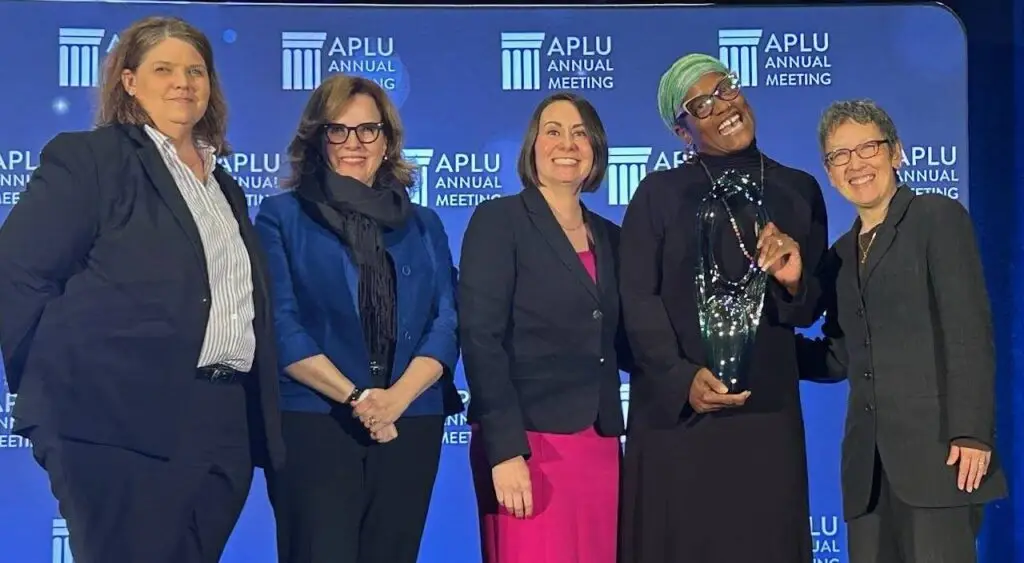Coined as “audacious” when it launched in 2018, The Pittsburgh Study (TPS) has proven that an inclusive, community-centered approach can yield tangible results to immediately improve the well-being of children and affect positive systemic changes that help ensure their future health and prosperity. Navigating the first five years of what will be decades-long work with unprecedented success, TPS has been widely embraced by the community, research peers, and the University of Pittsburgh with its focus on collaboration and commitment to building authentic relationships within local neighborhoods.
“We chose to call TPS a study because we believe that science belongs to everyone and that one of the ways to build trustworthiness in science and health care is to acknowledge our history and to work towards repair,”
–Dr. Liz Miller, co-director for the Pittsburgh Study, Medical Director, Community and Population Health, UPMC Children’s Hospital of Pittsburgh, Distinguished Professor of Pediatrics, University of Pittsburgh School of Medicine and Co-Director, Community PARTners Core, Clinical and Translational Science Institute at the University of Pittsburgh.
Milestone of Success
Now recognized by academic and medical institutions across the country for their leadership and excellence, The Pittsburgh Study has the national distinction of winning the C. Peter Magrath Award for Community Engaged Scholarship presented by the Association of Public and Land-grant Universities. TPS won this top-ranking after competing among university peers as one of four finalists for the W.K. Kellogg award for Community Engaged Scholarship earlier this year.
Dr. Miller explains, “TPS is not just one study, but multiple co-created interventions all focused on thriving, and led by transdisciplinary teams. We are pushing the boundaries on the science of thriving – we are looking at measurement from the individual to the community level that uplifts community strengths and connectedness. For example, not just whether our Black children are getting suspended, but also asking how they feel connected, supported, and loved at their school.”

Community Builds Collective Impact
Partnerships extend the capacity for TPS to create new joint programs and initiatives, including workforce development, youth data literacy, and supporting children across developmental stages. Linking university-community initiatives to promote children’s thriving cuts across multiple domains from clean air to early childhood literacy. “We’re building connections throughout the child thriving ecosystem,” says Dr. Jamil Bey, the CEO of UrbanKind Institute and director of research for The Pittsburgh Study. “Consider how working with children to plant trees at their school to grow our urban canopy and improve air quality is also promoting their social emotional learning and increasing their connection to school.”
Systemic Change for a Strong Future
It can be decades before traditional research is translated and put into practice. For years, generations have been involved in research in hope for a solution and change. Disappointingly, most research interventions aren’t implemented in time to benefit the children who participate in the studies. As the next generations rise, so too do new challenges. TPS is changing this cycle. Through ensuring that community members are involved in the process of scientific discovery together, TPS uses the entire production of scholarship to accelerate the translation of science — from generating new ideas, interpreting data together, and changing policies and practices to shift the trajectories for our children, and transform Allegheny County and beyond.
“The scientists are evolving and, as a result, the science is evolving. More importantly, our community is evolving to acknowledge its inherent power and recognize that institutional power has been elusive and unavailable to us,” – Felicia Savage Friedman, TPS community co-director, Anti-Racism instructor, University of Pittsburgh School of Medicine, and Founder, CEO of YogaRoots on Location.
“The Pittsburgh Study continues to transform my life. For example, it has granted me the opportunity of a lifetime–to co-direct, teach, and train our second-year medical students in a course called, Antiracism and Health Equity Solutions. This is the first time a course in our School of Medicine is being co-directed by a community member. This is how you assist communities in getting a sense of their own power and drive positive change,” Savage Friedman shared.
About TPS: The Pittsburgh Study is more than one study. It’s a collective impact initiative at the intersection of community health, research, and child health equity. Seeded with support from the Shear Family Foundation, UPMC Children’s Hospital Foundation, the University of Pittsburgh, the Grable Foundation, the PNC Foundation, and others, TPS has focused on collaborating across systems and disciplines, convening a variety of partners, organizations, and individuals to collectively promote child thriving and racial equity in our region.
Between age-based cohorts and scientific committees, more than two dozen university departments and resource centers engage in the work alongside partners that number in the hundreds and include researchers, clinicians, social service agencies, civic institutions, school districts, and thousands of children, youth, and families. Shared decision-making and empowerment define and guide program interventions such as, Doula services; Family & Parenting Support; The 3Rs: Reading, Racial Equity, & Relationships; Just Discipline; Expect Respect; and Creating Peace.
To learn more, visit: The Pittsburgh Study – Helping the children of Allegheny County thrive.
Subscribe: The Pittsburgh Study (list-manage.com) Follow us on LinkedIn: The Pittsburgh Study: Overview | LinkedIn

